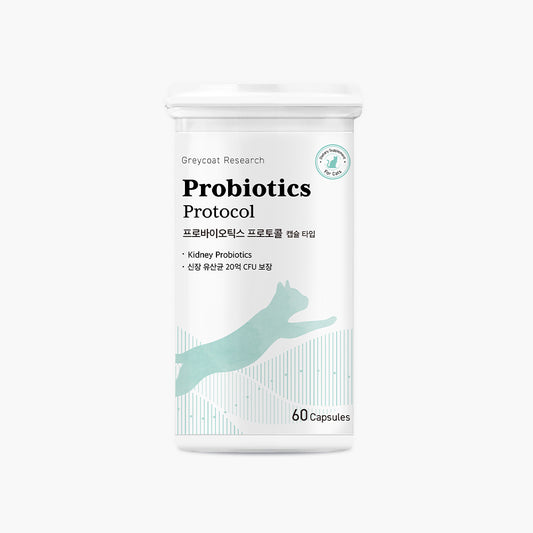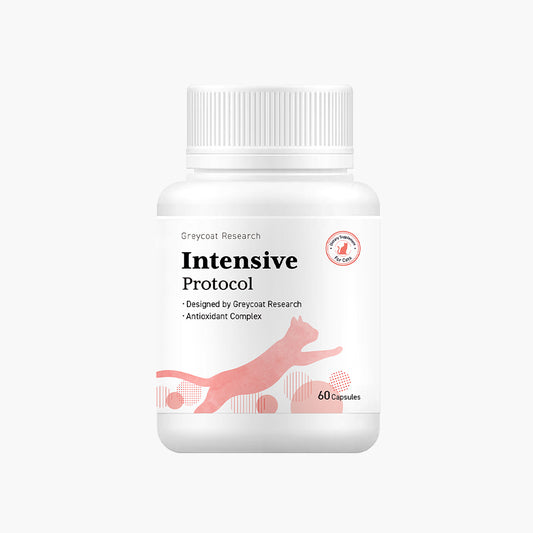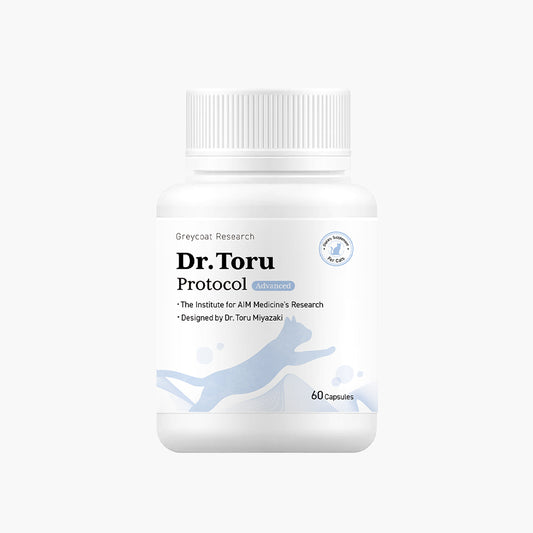
A cat undergoing a checkup at a veterinary hospital.
“My cat was just diagnosed with CKD! What should I do?”
Feline chronic kidney disease (CKD) is a progressive illness that cannot be cured. However, with the right care, you can slow its progression and significantly extend your cat's quality of life. Every decision you make after your cat's diagnosis can have long-lasting effects on their health and lifespan.
Greycoat Research provides personalized 1:1 consultations for cats with CKD, based on data collected from over 1,000 consultation cases.
- Insights from Dr. Kim Jae-young, who cared for Minky, the oldest living cat in Korea at 28 years old
- Expert guidance from Dr. Kobayashi Motoo, a veterinarian with 30 years of experience in CKD cat care
- Consultations for AIM supplements designed by Dr. Toru Miyazaki of Japan's Institute for AIM Medicine
- Tailored administration guides developed in collaboration with experienced veterinary pharmacists
The 4 most important aspects of caring for a cat with stage 2 CKD is providing them with the right food, supplements, lifestyle, and environment.
1. Switch to a Renal Diet
The first and most important step to caring for a CKD cat is switching them to a renal diet. Renal cat food is designed to reduce strain on the kidneys, but are also less appealing to cats. As such, owners must help their cats adjust to their new diets.
Why Choose Renal Food?
- Lower sodium, phosphorus, and protein content → Reduces kidney strain
- Slows CKD progression → Improves quality of life
Recommended Renal Food Brands
- Hill’s Prescription Diet k/d
- Royal Canin Renal Special
- Royal Canin Renal Select (more palatable than other options)



Hill’s Prescription Diet k/d, Royal Canin Renal Special, Royal Canin Renal Select
How to Transition to a Renal Diet
- Buy a single bag of renal cat food to see if your cat is willing to eat it.
- Start by mixing their original food with the renal food, and steadily increase the ratio of renal food until they have transitioned to a renal diet.
- Do not let your cats starve! Weight loss can be critical to CKD cats, as it puts a burden on their kidneys.
- If you are currently feeding your cat raw food, we strongly advise you to switch to a renal diet immediately. High-protein diets like a raw food diet can worsen kidney damage.
Real-life Case Study
- The following blood test results are from a consultation case from the US. After their cat was diagnosed with stage 2 CKD, the cat’s owner put them on a renal diet, but did not administer any additional supplements. As a result, the cat’s CKD progressed to stage 3 in just 3 months.


Blood test results of a cat whose CKD progressed from stage 2 to stage 3 in just 3 months.
Renal food is a must, but it is also just the beginning. In order to keep your cat’s CKD from getting worse, you need to provide them with supplements as well.
2. Administer Supplements
When it comes to managing CKD, supplements are not optional - they’re essential to keep your cat’s kidneys from getting worse.
Recommendations for Stage 2 CKD
- Basic Care: AIM Supplements + Probiotics + Vet-prescribed Medications
- Active Care: AIM Supplements + Probiotics + Antioxidants + Omega-3 + Vet-prescribed Medications
What Do Supplements Do?
- AIM Supplements → Based on the latest research from Japan, AIM supplements remove waste from kidneys
- Probiotics → Remove uremic toxins and keeps the gut healthy
- Antioxidants → Protect kidney cells and slows aging (recommended for cats over 4 years old)
- Omega-3 → Relieve kidney inflammation (administered in capsule form)
Real-life Case Study
- We have received many consultation requests from cat owners whose cats went from stage 2 to stage 3 CKD due to the owners not giving them the supplements they needed.
- In such cases, even supplements and renal food alone are not enough to manage a cat’s CKD. At this point, daily subQ fluid injections are necessary, and medications may be needed as well, increasing the monthly expenses for care to over $250 a day.
In order to keep your cat’s CKD from getting worse, you must begin actively administering supplements from as early as stage 2.
3. Play Hunting for Kidney Health

A cat plays while attempting to catch a toy.
How Does Play Hunting Help?
- Play hunting triggers a dopamine release and maintains a cat’s energy levels.
- Dopamine increases blood flow in the kidneys, which helps maintain kidney functions.
- CKD cats should play hunt at least 10 minutes a day!
Backed By Research
- According to research, dopamine plays a vital role in adjusting blood flow and regulating sodium excretion in the kidneys, and these help maintain kidney functions.
- Dopamine levels tend to gradually decrease in CKD cats. As such, encouraging activity to trigger dopamine release can help maintain kidney health.
4. Create an Ideal Environment for CKD Cats
What to Avoid
- Perfumes, Diffusers, Cigarettes ❌ → Harmful to kidneys
- Scented Cat Litter ❌ → Bad for kidney health
Use Bentonite Cat Litter
- Bentonite is safe in small amounts and often used in supplements such as phosphorus binders to treat CKD in cats and humans alike.

A cat using bentonite cat litter.
Real-life Case Study
- We have received many reports of reduced kidney functions in CKD cats who used scented cat litter.
- We have also received numerous reports of reduced kidney functions in cats who lived in households with diffusers.
Get a Free Consultation Today!
If your cat’s been diagnosed with CKD, the most important thing is understanding the proper care strategy right away. However, since every cat’s situation is different, you need customized guidance to ensure effective management.
- Consultations to help choose the right renal diet
- Recommendations for an effective supplement regimen
- Customized solutions for creating the optimal living environment
When it comes to CKD cat care, the sooner, the better. If you feel lost and don’t know what to do, schedule a consultation today!
Greycoat Research provides personalized 1:1 consultations for cats with CKD, based on data collected from over 1,000 consultation cases.
- Insights from Dr. Kim Jae-young, who cared for Minky, the oldest living cat in Korea at 28 years old
- Expert guidance from Dr. Kobayashi Motoo, a veterinarian with 30 years of experience in CKD cat care
- Consultations for AIM supplements designed by Dr. Toru Miyazaki of Japan's Institute for AIM Medicine
- Tailored administration guides developed in collaboration with experienced veterinary pharmacists



